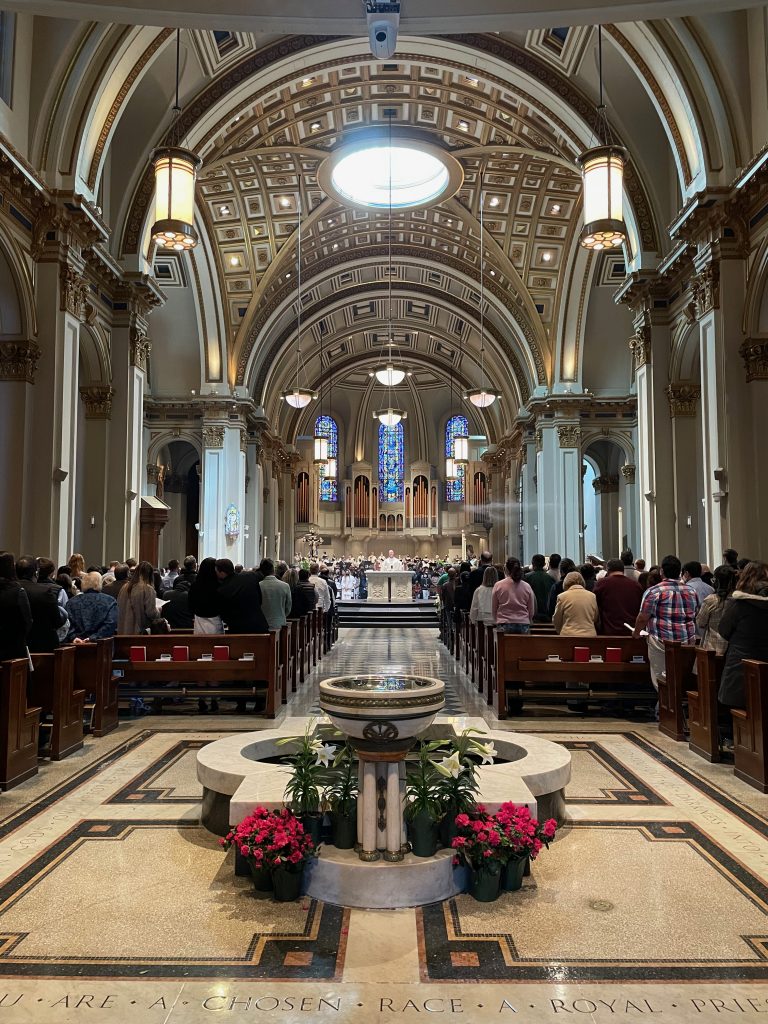In this time of rapid change, Pope Francis wisely notes that we are living not in a time of change, but a change of epoch. I harken back to another saying, that the more things change, the more they stay the same.
During the Second Vatican Council, the Church Fathers noted many of the realities faced by the human person and family. Their summary sounds very similar to what we deal with today:
10. The truth is that the imbalances under which the modern world labors are linked with that more basic imbalance which is rooted in the heart of man. For in man himself many elements wrestle with one another. Thus, on the one hand, as a creature he experiences his limitations in a multitude of ways; on the other he feels himself to be boundless in his desires and summoned to a higher life. Pulled by manifold attractions he is constantly forced to choose among them and renounce some. Indeed, as a weak and sinful being, he often does what he would not, and fails to do what he would. Hence he suffers from internal divisions, and from these flow so many and such great discords in society. No doubt many whose lives are infected with a practical materialism are blinded against any sharp insight into this kind of dramatic situation; or else, weighed down by unhappiness they are prevented from giving the matter any thought. Thinking they have found serenity in an interpretation of reality everywhere proposed these days, many look forward to a genuine and total emancipation of humanity wrought solely by human effort; they are convinced that the future rule of man over the earth will satisfy every desire of his heart. Nor are there lacking men who despair of any meaning to life and praise the boldness of those who think that human existence is devoid of any inherent significance and strive to confer a total meaning on it by their own ingenuity alone.
We know well the divisions we face today, the desire of much of our culture to be solely dependent upon our own efforts and ingenuity. One can also imagine that in the face of so much emotional distress, there is plenty of evidence that many people have yet to discover a proper and satisfying response to their deepest desire.
On this Solemnity when we celebrate once again that Christ is King, the Church Fathers of the Second Vatican Council knew where the answer lies to the heart’s deepest desire – in Christ:
The Church firmly believes that Christ, who died and was raised up for all, can through His Spirit offer man the light and the strength to measure up to his supreme destiny. Nor has any other name under the heaven been given to man by which it is fitting for him to be saved.3 She likewise holds that in her most benign Lord and Master can be found the key, the focal point and the goal of man, as well as of all human history. The Church also maintains that beneath all changes there are many realities which do not change and which have their ultimate foundation in Christ, Who is the same yesterday and today, yes and forever. Hence under the light of Christ, the image of the unseen God, the firstborn of every creature,5 the council wishes to speak to all men in order to shed light on the mystery of man and to cooperate in finding the solution to the outstanding problems of our time.
(“Pastoral Constitution on the Church in the Modern World: Gaudium Et Spes,) Vatican II Documents.
May Christ the King grant the human family the grace and wisdom to discover fresh and new the God who is the Creator of the one human family. At the same time, may each of us have the grace and wisdom to find in Christ, the answer to all our needs, and the desire of our hearts.
Peace!
0